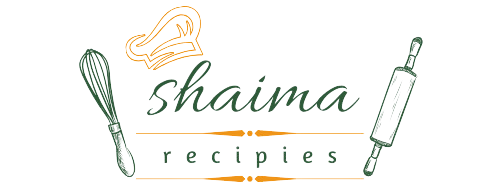There’s a reason nearly every chef, from fine-dining pros to home-cooking heroes, starts with eggs. They’re fast. They’re affordable. And they’re surprisingly versatile. If you’re serious about learning how to cook, mastering how to cook eggs is one of the smartest (and most rewarding) places to begin.
Why? Because cooking eggs teaches you how to manage heat, timing, and texture. They respond instantly to what you do in the pan, making them one of the best ingredients for building your confidence and instincts in the kitchen.
Why Eggs Matter

Eggs aren’t just for breakfast — they’re an anytime, anywhere kind of food. Whether you’re throwing together a 10-minute meal, powering up your protein, or meal-prepping snacks for the week, eggs are your go-to solution.
Scrambled eggs for breakfast, a fried egg on a burger, chopped boiled eggs in a salad, or simply one in your ramen — knowing how to cook eggs means you’ll always have a back-pocket meal ready, no matter how bare your fridge is.
They’re also incredibly nutrient-dense. One egg gives you high-quality protein, healthy fats, and a nice dose of vitamins. It’s the kind of ingredient that works for college students, busy parents, or anyone who wants to cook smarter.
Master the Core Techniques
There are dozens of ways to cook eggs, but you only need to master a few to cover most recipes and situations. These four methods will build your foundation:
Scrambled
Crack eggs into a bowl, whisk with a splash of milk or cream (optional), and season lightly with salt and pepper. Heat a nonstick skillet over medium-low heat, melt a little butter, and pour the eggs in. Stir gently, scraping the bottom of the pan in slow folds. Low heat = creamy, soft texture. Remove just before they’re fully set — they’ll finish cooking off the heat.
Fried
Start with a hot, lightly oiled nonstick or well-seasoned pan. Crack the egg into a small bowl first to avoid shell pieces, then gently slide it into the pan. For sunny-side up, don’t flip — just cover with a lid to cook the top gently. For over-easy or over-medium, flip carefully with a spatula and cook for another 20–60 seconds.

Boiled
Place cold eggs in a saucepan, cover with water, and bring to a boil. Once boiling, turn off the heat, cover, and let sit: 6–7 minutes for jammy, 10–12 for hard-boiled. Transfer immediately to an ice bath to stop cooking and make peeling easier. If you’ve struggled to boil eggs before, this method changes everything.

Cracking + Separating
Tap the egg on a flat surface (not the bowl’s edge) to avoid shell fragments. Open it gently over a bowl, letting the whites fall out first if you’re separating. Use your clean fingers or the shell halves to hold the yolk. This is useful for baking, making hollandaise, or even whipping up meringue.

Knowing how to cook eggs across these styles gives you flexibility, no matter the meal or mood.
It’s Not Just Technique — It’s Confidence

Eggs are sensitive to heat, texture, and timing — which makes them the perfect “teacher food.” Every time you make them, you’re learning how to manage temperature, watch for doneness, and respond to what’s happening in the pan.
Mastering how to cook eggs is less about following rules and more about building feel. You learn what soft scramble looks like. What a properly flipped fried egg feels like. When a boiled egg is ready to plunge into cold water. These are the kinds of instincts that carry over into every other dish you make.
What’s the Easiest Egg Style to Start With?

If you’re brand new, start with scrambled eggs. They’re the most forgiving. You don’t need precision, flipping, or timing to the second — and you can experiment with mix-ins like cheese, spinach, mushrooms, or herbs.
Once you’re comfortable scrambling, try boiling next. It’s a great skill for meal prep and an easy confidence boost when you get the timing right. Fried eggs come next — trickier at first, but easy with a good nonstick pan and a little patience.
The key is repetition. Pick one style and practice it a few different ways. You’ll build muscle memory, speed, and trust in your own cooking instincts.
FAQs
Why do my scrambled eggs turn out rubbery?
You’re likely using heat that’s too high or cooking them too long. Lower the heat, stir gently, and remove them from the pan while still slightly wet.
What’s the best pan for frying eggs?
A nonstick skillet or well-seasoned cast iron pan works best. The smoother the surface, the easier the egg releases without tearing the yolk.
How do I peel boiled eggs cleanly?
Use older eggs (they peel easier), and always cool them in an ice bath after cooking. Gently tap and roll on the counter to loosen the shell before peeling.
Can I still use eggs past the expiration date?
Often, yes — especially if they’ve been refrigerated. Do the float test: place the egg in a bowl of water. If it sinks and lays flat, it’s fresh. If it floats, toss it.
Conclusion
Learning how to cook eggs isn’t just about breakfast — it’s a gateway to cooking with skill, instinct, and confidence. With just a few simple techniques, you unlock fast meals, better textures, and a deeper sense of control in your kitchen.
And the best part? Eggs don’t judge. They’re cheap, flexible, and forgiving. Whether you’re starting your cooking journey or leveling up your basics, eggs are the one ingredient that will always have your back.
and If you want to learn more cooking techniques check 12 Basic Cooking Skills Every Adult Should Know
How was this recipe to you ?
There are no reviews yet. Be the first one to write one.

